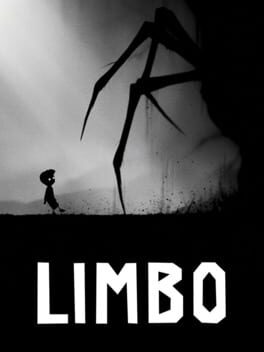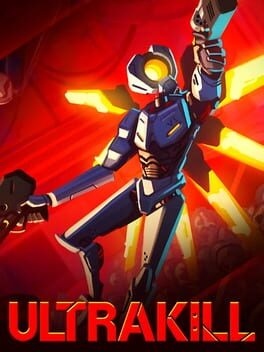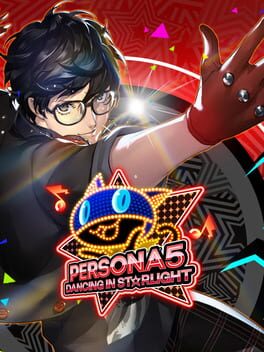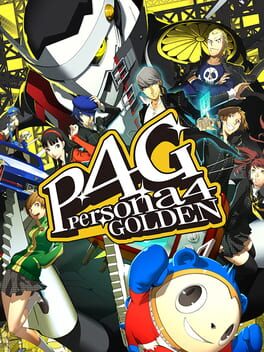NoahHerbert
2012
Journey is beautiful and soothing. The puzzles are simple but fun to solve, consequently the flow of the game is never halted which I really appreciate. The art direction is absolutely breathtaking, from the expansive vistas to the way the environment and its other inhabitants respond to your interaction. The traversal elements in Journey helps keep the player engaged while also highlighting or showcasing its amazing visuals from different angles and elevations, sliding down sand dunes should absolutely be in more games. Finally I just love the concept of seeing your destination from afar, and being able to measure your progress from your proximity to it. I look forward to playing another title by this developer when my mood compels me to, i.e when I'm burnt out from long RPGs and am looking for something short to just wash over me :)
2010
Refreshingly short and simple puzzler, the black and white visuals are distinctive and clean. Starts a little slow but picks up quickly with more competant puzzles cropping up in the second half. Playdead go onto perfect their brand of environmental story telling in their subsequent game, however Limbo is comendable for establishing the base off of which Inside builds.
2020
In recent years I have been enjoying single-player FPS games less and less, I thought that maybe they just weren't for me anymore. I was glad to be proven wrong when playing Ultrakill. The gameplay is nuanced, with a truly impressive amount of player expression available. This is commonly missing in most shooters which explains my growing fatigue.
Stellar and diverse levels complement this amazing gameplay, although in classic boomer shooter fashion they are disconnected and do not flow into one another. Boss fights were an unexpected highlight especially those against V2 and Gabriel where your mastery of effective weapon switching, and evasion truly gets put to the test. These fights are relentless in the best possible way as the boss AI is reminiscent of how you yourself play, so the satisfaction upon besting these two is immense. The integration of checkpoints was a good choice also as they prevent frustration on higher difficulties whilst not being too egregious.
I’m looking forward to when I get to blitz my way through the newly released Layer 7. As after the holidays are over, I go back and reunite with my primary PC setup, namely my nice peripherals. So yes, I’ve been holding off so that I can experience it the right way :)
Stellar and diverse levels complement this amazing gameplay, although in classic boomer shooter fashion they are disconnected and do not flow into one another. Boss fights were an unexpected highlight especially those against V2 and Gabriel where your mastery of effective weapon switching, and evasion truly gets put to the test. These fights are relentless in the best possible way as the boss AI is reminiscent of how you yourself play, so the satisfaction upon besting these two is immense. The integration of checkpoints was a good choice also as they prevent frustration on higher difficulties whilst not being too egregious.
I’m looking forward to when I get to blitz my way through the newly released Layer 7. As after the holidays are over, I go back and reunite with my primary PC setup, namely my nice peripherals. So yes, I’ve been holding off so that I can experience it the right way :)
Basically just an inferior version of the Persona 4 Dancing. Nothing burger social events, forgettable remixes. Having to play through the same songs repeatedly to unlock the ‘story’ content is a bore, why not make these all unlock by the time you have cleared each song just once? Also the music in Persona 5 while phenomenal is way worse off in a dancing game than Persona 4’s. I may just be burnt out on the gameplay after the prior entry but I couldn’t stomach any more. For now I’m shelving this which is rather rare for me but I guess this just speaks for how vapid this game is.
1994
Took me far too long to get around to this classic. The upgrades for Samus are still impressive and unique, consequently the environmental puzzle solving is super engaging, which is something a lot of modern Metroidvanias sorely lack. Some of the ways forward can be a bit obtuse but the satisfaction of finding the solution makes it worthwhile. I didn’t expect to enjoy some of the boss fights as much as I did, whilst what they expect from the player is quite simple, to run, gun, duck and jump, each did a good job differentiating themselves in the way they move about the arena, their movesets, attack patterns and of course in their distinct, beautiful pixel art. I do wish more platforming was incorporated into these battles however that may have over complicated things which I get. All the areas in the game are outstanding, with stellar level design throughout, the shortcuts connecting each area are also well thought out, meaning backtracking never became arduous.
In conclusion it is incredible to think that Super Metroid was released almost 30 years ago, I can’t imagine how futuristic it must have felt back then. Its depth is still astonishing and honestly it puts most modern Metroidvanias to shame.
In conclusion it is incredible to think that Super Metroid was released almost 30 years ago, I can’t imagine how futuristic it must have felt back then. Its depth is still astonishing and honestly it puts most modern Metroidvanias to shame.
In this review I will not be trying to dissect the story of a House in Fata Morgana due to its scope and complexity however I still would like air my thoughts about it.
The House in Fata Morgana is a beautifully tragic story about love, hatred, regret, and forgiveness. The non-linear structure in which this story is told is a notable point of genius, as your perception of certain events or characters drastically shift in unexpected ways as the story develops. A lot of stories often fall into the trap of making characters too faultless or likeable and I think The House in Fata Morgana straddles the line perfectly, by writing characters that have depth and seem genuine. Furthermore, I like how during the story, we often swap perspectives, which again alters our perception of these characters, allowing us to come to empathise with each and every one of them no matter how irredeemable they originally appeared.
The ‘villain’ in The House in Fata Morgana is as equally unique as its plot, both of which I unfortunately can’t discuss without ruining the story. I can however talk about the music! The soundtrack here is extremely effective in creating the atmosphere of this mansion when our view of its interior is so limited. This is due to great compositions, a suitably gothic choice of instrumentation and the amazingly spectral quality of the vocals in these tracks. Furthermore, the way the soundtrack is utilised to better convey the tone during key scenes in absence of voice acting is genius. This is especially evident in its most haunting and memorable moments.
In conclusion, The House in Fata Morgana is a narrative triumph and culminates in a truly beautiful and unforgettable way, and I believe it has left a lasting impression on me as it for has for many others.
The House in Fata Morgana is a beautifully tragic story about love, hatred, regret, and forgiveness. The non-linear structure in which this story is told is a notable point of genius, as your perception of certain events or characters drastically shift in unexpected ways as the story develops. A lot of stories often fall into the trap of making characters too faultless or likeable and I think The House in Fata Morgana straddles the line perfectly, by writing characters that have depth and seem genuine. Furthermore, I like how during the story, we often swap perspectives, which again alters our perception of these characters, allowing us to come to empathise with each and every one of them no matter how irredeemable they originally appeared.
The ‘villain’ in The House in Fata Morgana is as equally unique as its plot, both of which I unfortunately can’t discuss without ruining the story. I can however talk about the music! The soundtrack here is extremely effective in creating the atmosphere of this mansion when our view of its interior is so limited. This is due to great compositions, a suitably gothic choice of instrumentation and the amazingly spectral quality of the vocals in these tracks. Furthermore, the way the soundtrack is utilised to better convey the tone during key scenes in absence of voice acting is genius. This is especially evident in its most haunting and memorable moments.
In conclusion, The House in Fata Morgana is a narrative triumph and culminates in a truly beautiful and unforgettable way, and I believe it has left a lasting impression on me as it for has for many others.
2001
Even with its hefty reputation it still blew me away. Silent Hill 2 is absorbing, I beat it in two sittings, playing until almost two in the morning the first day. I think the main reason for this was because of its excellent atmosphere, which engulfs you like the fog has the sleepy town of Silent Hill. This is primarily achieved by its outstanding sound design which is instantly recognisable. The OST is another highlight and does an exceptional job reinforcing the themes and atmosphere of the game.
I love the small-scale exploration present in Silent Hill 2. Gradually, familiarising myself with the layout of a building, using the map to make sure nothing goes unchecked and ultimately solving these environmental puzzles was always really satisfying. Whilst the other puzzles here aren’t exactly complex, they do well enough to serve their purpose.
The quality of the story in Silent Hill 2 took me by surprise. It is a masterful meditation on grief and guilt and is for me the closest a video game has gotten to telling a story comparable to an arthouse film, in the way it desires to stimulate instead of just simply entertaining. The way it is integrated into the game was perfect too, there never felt like there was a disconnect between the story and gameplay segments, which I think is a problem in modern games which try to be cinematic to a fault. In conclusion play this game! It is an essential masterpiece which will be remembered for just how much ground it broke at the time it released and finally how it continues to be one of the finest examples of video games as art to this day.
I love the small-scale exploration present in Silent Hill 2. Gradually, familiarising myself with the layout of a building, using the map to make sure nothing goes unchecked and ultimately solving these environmental puzzles was always really satisfying. Whilst the other puzzles here aren’t exactly complex, they do well enough to serve their purpose.
The quality of the story in Silent Hill 2 took me by surprise. It is a masterful meditation on grief and guilt and is for me the closest a video game has gotten to telling a story comparable to an arthouse film, in the way it desires to stimulate instead of just simply entertaining. The way it is integrated into the game was perfect too, there never felt like there was a disconnect between the story and gameplay segments, which I think is a problem in modern games which try to be cinematic to a fault. In conclusion play this game! It is an essential masterpiece which will be remembered for just how much ground it broke at the time it released and finally how it continues to be one of the finest examples of video games as art to this day.
2020
Every bit as good as its successor, centred around a more intimate, personal theme of accepting yourself and striving for the truth. This theme is most present in the social link aspect of the game, which is done excellently, deepening your investment in these characters, specifically your fellow party members, by telling these very emphatic human stories. Additionally, this also furthers your immersion, making the setting of Inaba feel less like just a game world and more like a real place with real people, which is funny when the map of Inaba is so limited.
While I certainly missed the intricate palaces from Persona 5, Persona 4 by no means has weak dungeon crawling, as each dungeon still oozes personality, and I generally found the battles on Hard difficulty more consistently engaging than Persona 5 even though it has more complex combat due to Baton Pass and Technical. This is because in Persona 5 Royal it is much easier to start battles with player advantage and battles are frequently over before the enemies’ turn whilst this is less the case in Persona 4 forcing you to consider your moves better and play more strategically. However, I do think Persona 5 still has Persona 4 beat on boss battles both visually and mechanically. The visual design of Persona 4’s bosses are still strong though, reaching the end of each dungeon was always a highlight, as I loved seeing how the twisted shadow of each victim would manifest. As in any Persona game the music is fantastic and does an excellent job of capturing the essence of the game.
Additionally, the scenes of the investigation team hanging out do a great job in convincing you that the group are genuine friends, and it was always a joy watching the characters interact with each other and seeing their relationships develop during these. Persona 4 is downright hilarious at times too which I can’t say about many other games.
In conclusion I think the best word that describes Persona 4 is ‘genuine', and I think that is an amazing achievement.
While I certainly missed the intricate palaces from Persona 5, Persona 4 by no means has weak dungeon crawling, as each dungeon still oozes personality, and I generally found the battles on Hard difficulty more consistently engaging than Persona 5 even though it has more complex combat due to Baton Pass and Technical. This is because in Persona 5 Royal it is much easier to start battles with player advantage and battles are frequently over before the enemies’ turn whilst this is less the case in Persona 4 forcing you to consider your moves better and play more strategically. However, I do think Persona 5 still has Persona 4 beat on boss battles both visually and mechanically. The visual design of Persona 4’s bosses are still strong though, reaching the end of each dungeon was always a highlight, as I loved seeing how the twisted shadow of each victim would manifest. As in any Persona game the music is fantastic and does an excellent job of capturing the essence of the game.
Additionally, the scenes of the investigation team hanging out do a great job in convincing you that the group are genuine friends, and it was always a joy watching the characters interact with each other and seeing their relationships develop during these. Persona 4 is downright hilarious at times too which I can’t say about many other games.
In conclusion I think the best word that describes Persona 4 is ‘genuine', and I think that is an amazing achievement.
2023
Wow the demo was good but after finishing the full game my expectations have been exceeded. Lies of P has succeeded tremendously in almost everything it set out to achieve. The setting of Krat inspired by the Belle Époque period lends itself beautifully to the style of gameplay found within this sub genre as during exploration and traversal, the ambience of the setting can really be appreciated. The visual design of the enemies is also noteworthy, particularly for the puppet type enemies and their animations.
Due to the nature of the fast and dynamic combat system, the developers were able to design complex and engaging movesets for bosses and elite type enemies which kept combat engaging throughout. I liked the addition of being able to recharge your healing resource through doing damage once exhausted as it allows players who are playing well the opportunity to push on further into a level or fell a boss instead of having to return to a stargazer just to replenish.
My only complaints with the game is it being too linear in nature and the colour palette being on the subdued side. Stunning debut title can't wait to see what the potential DLC has in store for us.
Due to the nature of the fast and dynamic combat system, the developers were able to design complex and engaging movesets for bosses and elite type enemies which kept combat engaging throughout. I liked the addition of being able to recharge your healing resource through doing damage once exhausted as it allows players who are playing well the opportunity to push on further into a level or fell a boss instead of having to return to a stargazer just to replenish.
My only complaints with the game is it being too linear in nature and the colour palette being on the subdued side. Stunning debut title can't wait to see what the potential DLC has in store for us.








